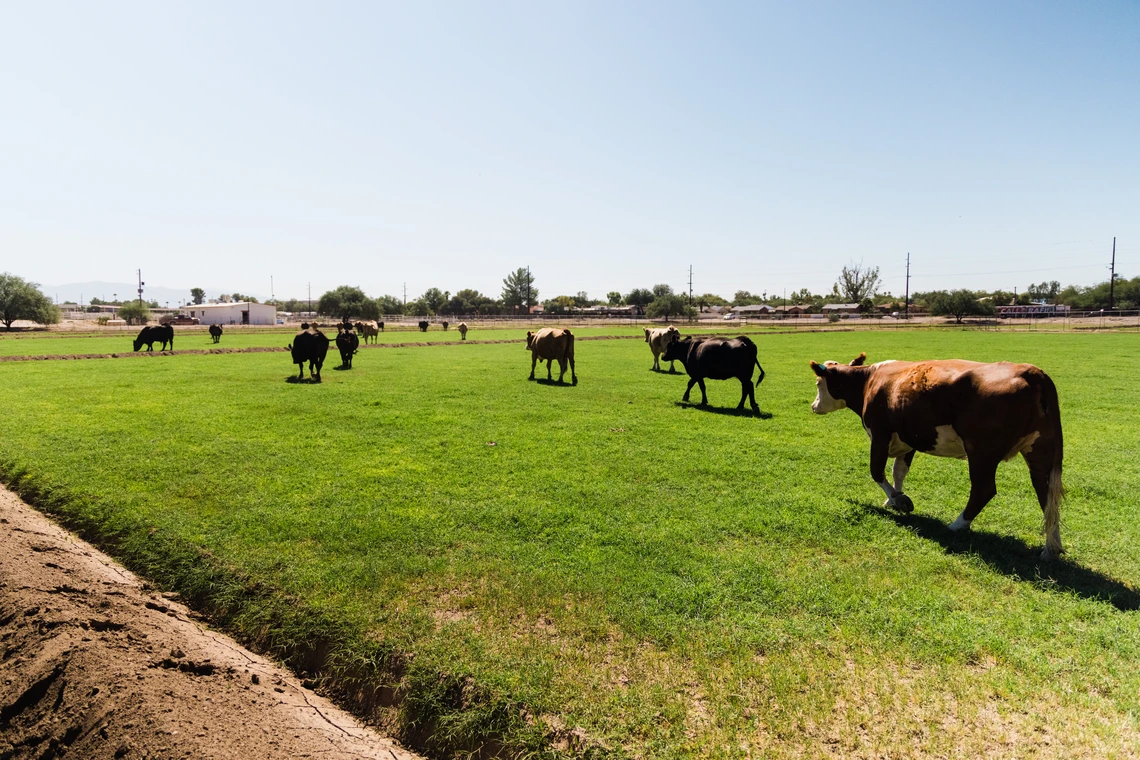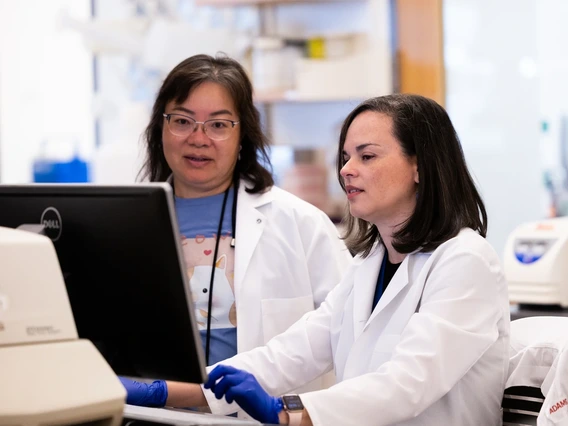Research
Rooted in Arizona, with impact around the globe.
Harnessing the connections between people and animals for a healthier future.
Research in the School of Animal and Comparative Biomedical Sciences is driven by a focus on One Health. With research laboratories concentrated on food safety, microbiology, virology, animal production, and human health; we simultaneously aim to improve animal production and human health.
Interdisciplinary by nature.
Our research activities take place in the laboratory, in the clinic and in the field. The resulting discoveries help us adapt to the challenges of a changing climate and sustainably feed a growing population, prevent the spread of infectious disease, and optimize human and animal health.
Harnessing the human-animal connection requires an interdisciplinary approach. Learn how we're bridging disciplinary boundaries to produce purpose-driven science with real-world impact.
Connect with our faculty experts by choosing a topic below to browse a directory of researchers in that area.

Services & Facilities
We offer services to benefit our stakeholders and connect University of Arizona research with our communities, focusing on aquaculture pathology, infectious disease, food safety and production. Our faculty, staff and students also conduct research, outreach and classes at a number of Experiment Stations across the state of Arizona.

Arid Lands Animal Production Initiative
We provide impactful multidisciplinary research, teaching and outreach programs that enhance the productivity and sustainability of food animal production in Arizona and arid lands worldwide. The Arid Lands Animal Production Initiative is focused on supporting Arizona's food systems and circular bioeconomies.
News, breakthroughs and profiles in science
Explore the work we're doing to put science to work to solve real-world problems.




